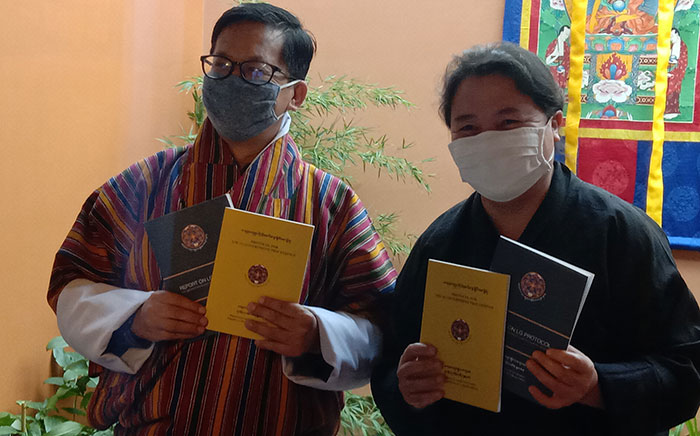Choki Wangmo
Local government (LG) sessions are expected to be more organised, impactful, and efficient henceforth with the introduction of protocol for local governance proceedings yesterday in Thimphu.
The protocol was developed to help guide the LG and their administrations in effectively conducting the LG sessions—dzongkhag tshogdu, gewog tshogde, and thromde tshogde.
It would also complement existing LG Act and LG rules and regulations in strengthening the LG institutions.
The document includes the essential steps and processes required for collection of agenda points, conducting meeting and implementing decisions of the LG sessions, among others.
Director of LG department, Kado Zangpo, said that the new protocol would encourage communities to make decisions and have a say on things that impact them, making them self-reliant.
Currently, the LG decisions were elite-driven and had less to do with communities and their needs, he said, adding that the vision of decentralisation couldn’t materialise since people were not engaged in the decision-making process.
Although section 138 of the LG Act requires that the LG sessions be open to public except where the chairperson feels ‘publicity would seriously prejudice public interest’, public participation as audience has been almost non-existent in the current sessions, according to a report on LG protocol.
The report stated that the lack of space as the main reason for absence of public from the sessions. It also identified gaps in the LG institutions such as low compliance to the obligations of the LG to the principles of good governance. Efficiency is affected by the lack of clarity in the role of the LG secretaries.
Tshogdrung is more pre-occupied with the functions of disaster management and kidu activities than his primary role as the dzongkhag tshogdu secretary, the report stated.
Similarly, the thromde executive secretary and the gewog administrative officers were engaged in administrative works, which affected the quality of LG sessions with poor preparatory works, quality of agenda and lack of implementation in the decisions from the LG sessions.
The study recommended the formulation of administrative instruction to enrich dzongkhag tshogdu and gewog tshogde decision-making structure and processes.
The protocol would be piloted across the country until the next LG elections. LGs will be asked to provide feedback for improvement.
The protocol was developed by the Department of Local Governance and was funded by HELVETAS Swiss Intercooperation.


